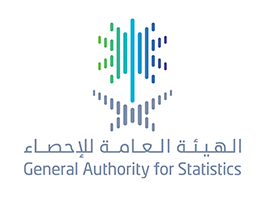
المملكة تختتم مشاركتها في أعمال الدورة (49) للجنة الإحصائية للأمم المتحدة
In order to develop the statistical sector and to follow up sustainable development goals
Saudi Arabia Ends its Participation in the Works of the United Nations Statistical Commission (49th Round)
Saudi Arabia Ends its Participation in the Works of the United Nations Statistical Commission (49th Round). It started last Tuesday until yesterday evening at the United Nations headquarters which is in New York City . In addition, the delegation headed by his Excellency Dr. Fahad bin Sulaiman Altekhaifi, president of the General Authority for Statistics. He indicated that the participation was an extension of the authority strategy for international participation. Also, to benefit from the best statistical practices because it reflected on the development of the statistical sector in the kingdom of Saudi Arabia. Moreover, he added that the kingdom of Saudi Arabia reviewed number of development axes for the statistical sector. During the works of 49th round, there was several presentations and interventions from co-sponsor delegation over four days. AL-Tekhaifi showed the statistical transformative experience was one of the axes where the authority addressed the road map and the dimensions on which it relied. Which is focusing on the importance of the client, quality and the development of the statistical sector. He mentioned that the KSA experience concerned the participants, and the progress of the statistical surveys reflect the affectivity and the importance of the listening to the clients from government entities and data users. Where the average of the surveys perversely were not over than eleven surveys in one year, but now in 2017 there are more than forty-two field surveys. In order to meet the requirements of the government entities and data users accordance with the regional and international requirements. At the level of the international statistical classification, the president of authority indicated that the authority focused on developed the statistical sector in KSA in several trends, Such as unified the use of international statistical classifications in the statistical surveys and administrative registers of ministries, government entities and privet sectors. Moreover, its first steps were unified the use of international industrial classification for economic activities in administrative registers (ISIC4), for all sectors and entities in the country. While, sector workshops were hold and meet bilaterally to define and to raise awareness of the classification. Also, to explain the mechanism of the application, and the importance of the study of the technical fields for all entities that related to. In order to ensure the access to the identical results based on one axis for the guide. Furthermore, the authority will continued the same approach for the rest of international classifications. Where, the same approach of national classification of occupation is applied recently (ISCO-08). The work of (49) round dealt with the household surveys, while authority confirmed that the household surveys is an important and main source for the different social statistics. That's because they are an active element for all the statistical systems, which based on provide several social indicators. It also considers as an important element to provide the related data of monitor progress in order to achieve the goals of sustainable development, under multitude requirements and challenges which faced by the available data.
GaStat Have focused on conducting a share amount of survey on household in that matter. In 2017 Among all the Surveys 17 of them was a household survey, and planning on doing 20 Household survey this year. The Authority is paying a great importance in register data, and has launched a numerous number of partnerships, initiatives and projects to link all the concerned institutions in the direction to come up with data that provides a lot of statistical indicators, also reducing the need for field survey.
United Nation Statistical Commission agenda included a number of topics, surrounding the open data. The participant delegators have indicated a number of steps taken by The Kingdom of Saudi Arabia on activating the Open data, to establish a high-level national committee for open data, at a ministerial level, led by The General Authority of Statics. To supervise the work regarding open data in Saudi Arabia, and strengthening coordination and partnership between the parties concerned. In addition to that, the project of Saudi Statistical Portal, which the authority is working on with a number of governmental institution, that offers statistical information’s in an up-to-date and easy-to-use way. Also, applying the best technical tools to access the information quicker and better, and applying the standards of data disaggregation as an open data, by international standards. As well as developing the digital content of the portal (e-content). And Increasing the level of e-reediness, In addition, further development of legislative and regulatory framework. The portal wouldn’t be only for the Authority, it would allow the all the institution, Authority’s and Government Institutions, to display their statistics in the same modern way, and working on strengthening the content with open data. The portal will support the social participation; it will allow visitors to publish their articles. The delegators have declared that this project consist of processing the basic data of GaStat, in addition to the other governmental data and the privet sector, to serve as convertible data which could be interactive graphics. GaStat has represented Saudi Arabia in this field lately as a member of the International Labour Organization of Big data and Official States-UN, whose membership includes 22 countries and 9 international authorities’.
On the other hand, GaStat have presented, through their participation, about their current experience in National Statistical Data(MASDAR) for conducting data and statistical indicators from the concerned authorities, and work with them to provide, publish and exchange data and national statistical indicators through Databases and specify electronic portals. Which support making decision in Saudi Arabia, also it’s a solid Informational bank to support Saudi Arabia 2030 Vision and National Transformation Programme 2020. GaStat have declared through the presentation that the goal of this programme is to build a comprehensive national statistical database which have all the statistical data from all the inner and outer sources to produce tabulations, indicators and analysis where the users and analysts need those data in or out of the Authority for statistical references to support decision, and making all of the development plans.
On the margins of the round the participant Saudi delegates met with a number of statistical commissions relevant to housing, social and economic statistics, as well as the South Korean delegates to discuss the road map of reinstate the agreement between the two countries.
It started at the United Nations headquarters which is in New York City, on the last Tuesday until yesterday evening. In addition, the delegation headed by his Excellency Fahad Ibn Sliman AL-Tekhaifi who is the president of the general authority for statistics. He indicated that the participation was an extension of the authority strategy for international participation. Also, to benefit from the best statistical practices because it reflected on the development of the statistical sector in the kingdom of Saudi Arabia. Moreover, he added that the kingdom of Saudi Arabia reviewed number of development axes for the statistical sector. During the work of (49) round there was several presentations and interventions from co-sponsor delegation over four days. AL-Tekhaifi showed the statistical transformative experience was one of the axes where the authority addressed the road map and the dimensions on which it relied. Which is focusing on the importance of the client, quality and the development of the statistical sector. He mentioned that the KSA experience concerned the participants, and the progress of the statistical surveys reflect the affectivity and the importance of the listening to the clients from government entities and data users. Where the average of the surveys perversely were not over than eleven surveys in one year, but now in 2017 there are more than forty-two field surveys. In order to meet the requirements of the government entities and data users accordance with the regional and international requirements. At the level of the international statistical classification, the president of authority indicated that the authority focused on developed the statistical sector in KSA in several trends, Such as unified the use of international statistical classifications in the statistical surveys and administrative registers of ministries, government entities and privet sectors. Moreover, its first steps were unified the use of international industrial classification for economic activities in administrative registers (ISIC4), for all sectors and entities in the country. While, sector workshops were hold and meet bilaterally to define and to raise awareness of the classification. Also, to explain the mechanism of the application, and the importance of the study of the technical fields for all entities that related to. In order to ensure the access to the identical results based on one axis for the guide. Furthermore, the authority will continued the same approach for the rest of international classifications. Where, the same approach of national classification of occupation is applied recently (ISCO-08). The work of (49) round dealt with the household surveys, while authority confirmed that the household surveys is an important and main source for the different social statistics. That's because they are an active element for all the statistical systems, which based on provide several social indicators. It also considers as an important element to provide the related data of monitor progress in order to achieve the goals of sustainable development, under multitude requirements and challenges which faced by the available data.
GaStat Have focused on conducting a share amount of survey on household in that matter. In 2017 Among all the Surveys 17 of them was a household survey, and planning on doing 20 Household survey this year. The Authority is paying a great importance in register data, and has launched a numerous number of partnerships, initiatives and projects to link all the concerned institutions in the direction to come up with data that provides a lot of statistical indicators, also reducing the need for field survey.
United Nation Statistical Commission agenda included a number of topics, surrounding the open data. The participant delegators have indicated a number of steps taken by The Kingdom of Saudi Arabia on activating the Open data, to establish a high-level national committee for open data, at a ministerial level, led by The General Authority of Statics. To supervise the work regarding open data in Saudi Arabia, and strengthening coordination and partnership between the parties concerned. In addition to that, the project of Saudi Statistical Portal, which the authority is working on with a number of governmental institution, that offers statistical information’s in an up-to-date and easy-to-use way. Also, applying the best technical tools to access the information quicker and better, and applying the standards of data disaggregation as an open data, by international standards. As well as developing the digital content of the portal (e-content). And Increasing the level of e-reediness, In addition, further development of legislative and regulatory framework. The portal wouldn’t be only for the Authority, it would allow the all the institution, Authority’s and Government Institutions, to display their statistics in the same modern way, and working on strengthening the content with open data. The portal will support the social participation; it will allow visitors to publish their articles. The delegators have declared that this project consist of processing the basic data of GaStat, in addition to the other governmental data and the privet sector, to serve as convertible data which could be interactive graphics. GaStat has represented Saudi Arabia in this field lately as a member of the International Labour Organization of Big data and Official States-UN, whose membership includes 22 countries and 9 international authorities’.
On the other hand, GaStat have presented, through their participation, about their current experience in National Statistical Data(MASDAR) for conducting data and statistical indicators from the concerned authorities, and work with them to provide, publish and exchange data and national statistical indicators through Databases and specify electronic portals. Which support making decision in Saudi Arabia, also it’s a solid Informational bank to support Saudi Arabia 2030 Vision and National Transformation Programme 2020. GaStat have declared through the presentation that the goal of this programme is to build a comprehensive national statistical database which have all the statistical data from all the inner and outer sources to produce tabulations, indicators and analysis where the users and analysts need those data in or out of the Authority for statistical references to support decision, and making all of the development plans.
On the margins of the round the participant Saudi delegates met with a number of statistical commissions relevant to housing, social and economic statistics, as well as the South Korean delegates to discuss the road map of reinstate the agreement between the two countries.

الهيئة العامة للإحصاء تبدأ باستقبال الطلاب والطالبات بمعرض "الإحصائي الذكي" بالتعاون مع "سايتك" الخُبر
Aiming to raise statistical awareness among students by using a scientific and attractive way
GaStat starts receiving students in “ The smart statistitician” exhibition in cooperation with “Scitech” Khobar
As part of its plan to raise statistical awareness among all society categories including school students, GaStat organizes the exhibition of “ The smart statistitician” in cooperation with Prince Sultan bin Abdulaziz Centre for Science and Technology “ Scitech” in Al Khobar city. The exhibition events are held in the centre during the period 9-20 Jumada the second 1439 H corresponding 25th of February- 8th of March 2018.
The exhibition which targets the students of intermediate schools, aims at showing how important is statistics in the life of students by using a scientific and attractive way. It also aims at identifying the most distinct concepts associated with statistics, in addition to raising the level of statistical awareness among students. Furthermore, this exhibition enhances the students’ recognition of the role of statistical entities and field statisticians, and the role of provided data accuracy on development as students are considered effective tools in conveying what they learn to their households.
The exhibition starts receiving the students by a demo video, so the students can get new scientific information in an attractive and entertaining way. The video will introduce statistics, the difference between statistics and mathematics, the General Authority for Statistics’ role, the role of students and households in GaStat work, and the way statistical research are implemented by simulating this experience and making students act like statisticians in their household visits.
The exhibition, which opens at 9 AM and closes at 1 PM (week days), includes many competitions such as the competition of the regions and numbers which aims at providing information about the population numbers in each region. There is also the competition of statistical symbols which teaches students about the importance of population and housing census and all statistical surveys in general.

الهيئة العامة للإحصاء تصدر "دليل الخدمات "السادس عشر 2017م وتعرض نتائجه عبر خريطة تفاعلية على موقعها الإلكتروني
General Authority for Statistics Releases the Sixteenth “Services Guide 2017” and View Its Results in an Interactive Map on Its Website
More than 5,800 tables covering the information of more than 16,000 populated areas
General Authority for Statistics issues the sixteenth “Services Guide 2017” and view its results in an interactive map on its website
On Monday 10/6/1439H - 26/2/2018, GaStat issued the sixteenth Services Guide of cities and villages’ statistics on its official website. This guide is considered an official unified reference for all services of governmental and private entities in the different Saudi regions with all their cities and villages. The guides of the thirteen regions contain data and information for 16.263 populated areas (city – village), including geographical information and data, educational and health serveries, and data related to the availability of administrative, social, and agricultural services as well as public services. This guide contains (5810) detailed tables.
Moreover, this guide, which was prepared by 27 entities, is one of the most important statistical references for the data of cities and villages. It is issued by GaStat every three years in order to provide a unified and official reliable data and information at a high level of accuracy. These data and information are about all available services of cities and villages. So that it can be a unified reference for all government ministries, institution and organization, researchers, students, and media.
The guide of each administrative region includes geographical data and information on the level of populated areas (city, village) and their services such as the services of public and privet education with their three stages, Quranic schools services, higher education services, technical, industrial, agricultural, and health education services, scientific, vocational, and commercial institutes services, institutes for persons with disabilities services, elderly and kindergarten schools services.
Furthermore, there are other services such as health services which include hospitals, health-care centers, public and privet clinics, Saudi Arabian red crescent services, data of administrative centers (governorate, municipality), traffic, police, and civil defense centers, departments of civil affairs, passport, Awqaf (religious affairs department), labor offices, committee for the propagation of virtue and prohibition of vice, writings of justice, courts, municipalities, social security offices, social development centers, ministry of agriculture and its brunches, agricultural development funds, real estate’s development fund, industrial development fund, lending bank, and the branches of ministries and authorities .In addition to the public services which include electricity, water, telecommunications, post offices, travel and tourism agencies, and banking services.
GaStat declared today that the data reference year is the fiscal year of 1436 H/1437 H (2016). However, the public education services guide results show that the total number of public and private primary schools in all thirteen regions is (14.688) schools, with (1.457.326) male students and (1.469.797) female Students.
As for the intermediate schools, the total number in all thirteen regions is (8.607) schools, with (694.612) male students and (657.043) female students. Whereas the total number of public and private high schools in all thirteen regions is (5.713) schools, with (647.292) male students and (633.821) female students.
The results of the services guide also show that there are (39) public and private universities in all thirteen regions of Saudi Arabia iincluding (688.644) male students, (752.356) female students, (41.954) male faculty members, and (34.037) female faculty members. However, the number of public and private colleges at the regional level has reached (112) colleges, (119,251) male students, (35,233) female students, (6,588) male faculty members, and (2,250) female lecturers.
According to the results of the guide of the health services, the total number of private and public hospitals has reached (469) hospitals, with (69.450) beds. Whereas the total number of government’s health care centers and private clinics has reached (4.808) centers in the Kingdom. Moreover, the total number of doctors in all government and private hospitals, government’s health care centers, and private clinics has reached (53.230) males and (25.917) females. Furthermore, the number of nursing staff has reached (30.849) males, and (131.896) females in the Kingdom. As for the total number of Red Crescent and Ambulance Centers, it has reached (397), with (4.850) paramedics, and (871) ambulance cars.
On the other hand, GaStat through its official website provides data of Services Guide through interactive map to keep up with the latest technology in the statistical field with a set of tools, functions, methods of research and logical analyses on the databases. As well as use Geographic Information Systems techniques in linking the statistical statement with the geographical coordinates of the site on the map to benefit from the spatial dimension as an element of the statistical statement in different searches and analyzes processes. It's worth noting that the Guide of Government Services Statistics for cities and villages of the Kingdom of Saudi Arabia released every three years based on the royal decree no. 3/w/26301 of 30/11/1401H states that the GaStat must arrange to release the Services Guide in cities and villages of the Kingdome of Saudi Arabia which contributes to the processes of planning and establishing future visions for development services to benefit the citizens in all Kingdom’s regions.

الأمير أحمد بن فهد نائب أمير المنطقة الشرقية يثمّن دور الهيئة العامة للإحصاء في تقديم بيانات وإحصاءات محدثة لكافة الجهات الحكومية
The Prince of the Eastern Province, Prince Ahmad Bin Fahad Values the Role of GaStat in Providing Updated Data and Statistics to All Government Entities
His Royal Highness the deputy prince of Eastern Province, prince Ahmad bin Fahad bin Salman bin Abdulaziz welcomed his excellency the President of the General Authority for Statistics, Dr. Fahad bin Salman Altukhifi and his delegation at his office in the principality court today Sunday. His Highness reviewed the latest data of the Eastern Province within the Services Guide 2017, released by the Authority through its website.
Additionally, he stressed that this high-level movement comes from the support and follow- up by the Custodian of the Two Holy Mosques King Salman bin Abdulaziz and His Royal Highness Crown Prince Mohammed bin Salman, may Allah protect them. Furthermore, it aims to push forward the Comprehensive Economic Development, as well as it spurs all government bodies including GaStat to work positively with the requirements of the stage. Also, he appreciated the role of GaStat in providing updated data and statistics to all government entities that support decision and policy makers.
His excellency the President of GaStat, Dr. Fahad Altukhifi clarified that the Eastern Region is witnessing a development on various levels led by his Highness the prince of the province and his deputy that lead us to follow these steps in the General Authority for Statistics, reflecting the numbers which are important indicators for the development across all governorates and regions. Moreover, he pointed out that the Services Guide 2017 published by the Authority through its website, includes statistics of services for the kingdom’s cities and villages. As well as it considers a unified official reference to the services of all governmental and non-governmental bodies available at different regions of the kingdom at the level of its cities and villages. Where it contributes to the processes of planning and establishing future visions for development services to benefit the citizens in all kingdom’s regions. The Guide, in which 27 governmental entities contributed to its preparation to be as a source of information for data, aims to provide geographic database for each populated area that has an accredited service, database on educational services, health services, social and development services, beside public services, administrative services, financial and banking services, as well as providing database for the most important service facilities at the level of kingdom’s regions.
